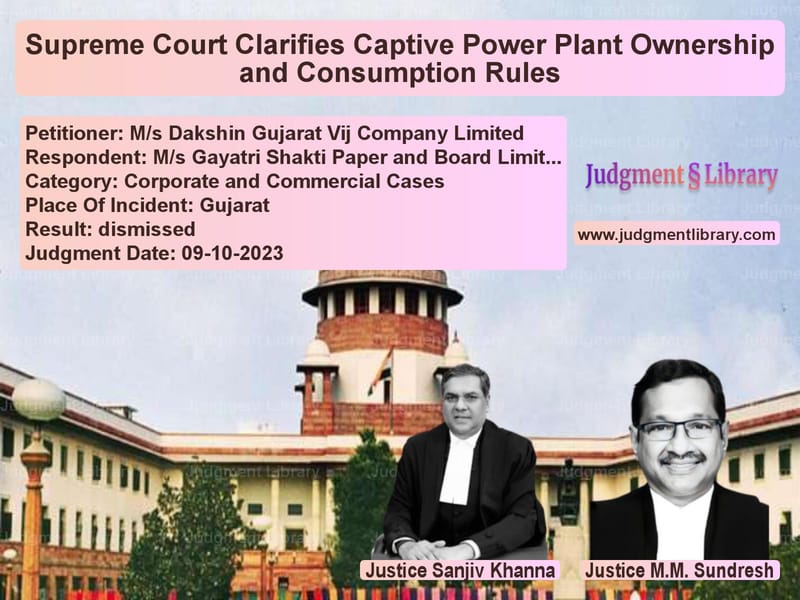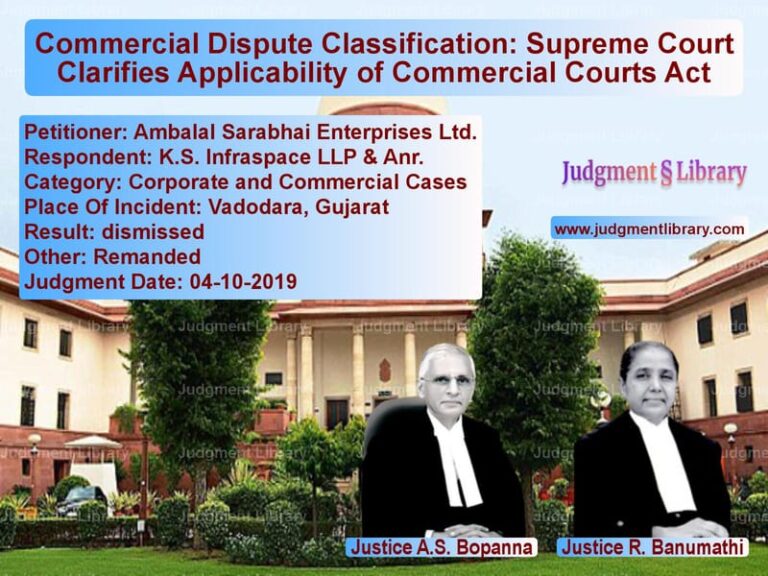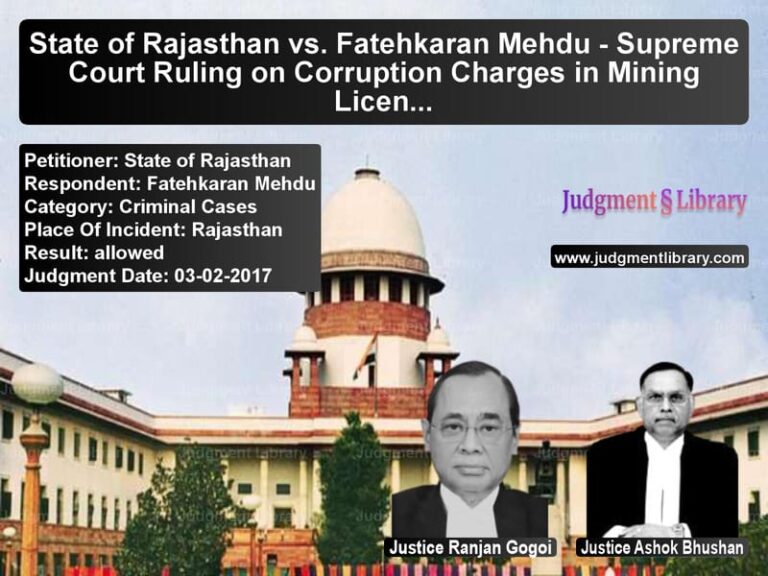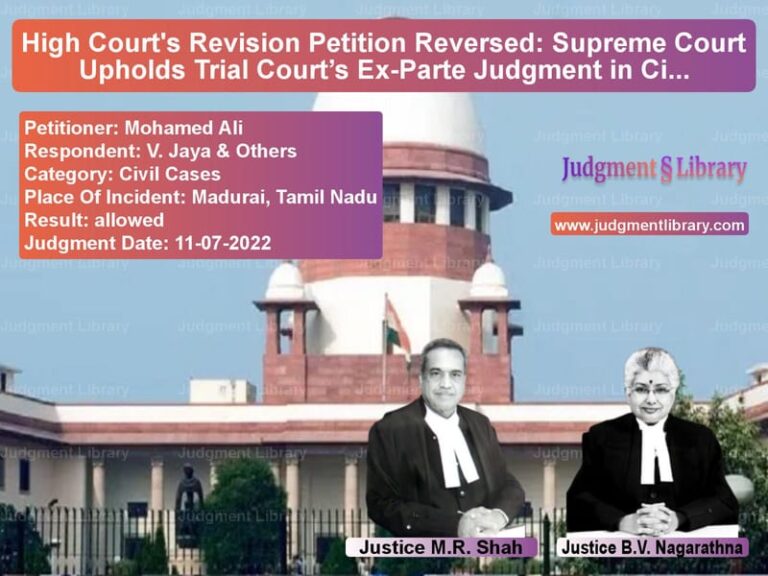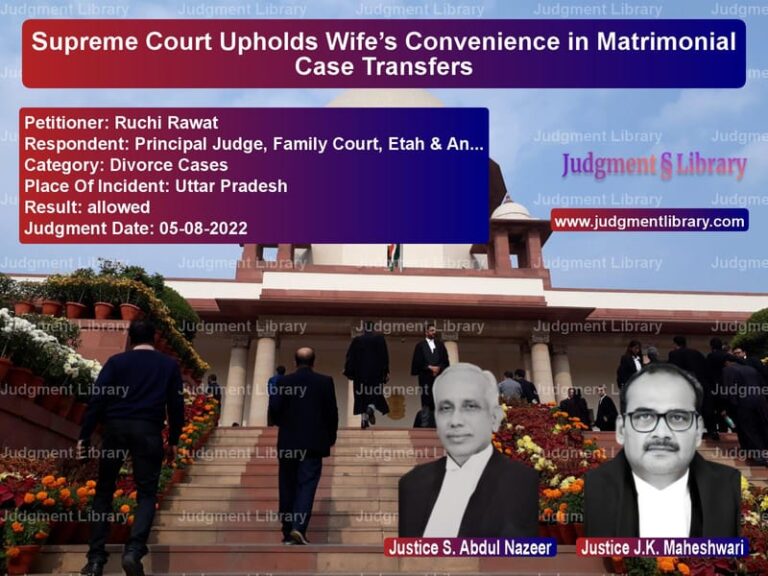Supreme Court Clarifies Captive Power Plant Ownership and Consumption Rules
The Supreme Court of India recently delivered an important judgment in M/s Dakshin Gujarat Vij Company Limited vs. M/s Gayatri Shakti Paper and Board Limited & Others, addressing key legal questions regarding captive generating plants (CGP) and their compliance with the Electricity Act, 2003 and Electricity Rules, 2005. The judgment focuses on the eligibility criteria for CGPs, the proportionality requirement for captive users, and whether a Special Purpose Vehicle (SPV) can qualify as an association of persons for captive use.
Background of the Case
The case involved multiple appeals filed by power distribution companies, industrial consumers, and regulatory commissions challenging the classification of power plants as captive generating plants. The central question was whether certain power plants met the statutory requirements under the Electricity Act, 2003, and the Electricity Rules, 2005, to be classified as CGPs and enjoy the benefits associated with such classification, particularly the waiver of cross-subsidy surcharges.
Under the Electricity Act, 2003, a CGP is defined as a power plant primarily set up for its own use, including those operated by cooperative societies or associations of persons. Captive users of such power plants benefit from exemptions on additional surcharges and open-access fees. However, the eligibility of such plants must comply with Rule 3 of the Electricity Rules, 2005, which stipulates ownership and consumption criteria.
Legal Issues Considered
The Supreme Court examined three key issues:
- Whether the eligibility criteria for a CGP/captive user under Rule 3(1)(a) of the Electricity Rules were being met.
- Interpretation of the proportionality requirement under the second proviso to Rule 3(1)(a) and whether Special Purpose Vehicles (SPVs) qualified as an association of persons.
- Whether a power company set up as an SPV could be considered an association of persons for CGP benefits.
Petitioner’s Arguments (Dakshin Gujarat Vij Company Limited and Others)
- The petitioners argued that certain power plants did not comply with the requirements of a CGP as defined under the Electricity Act and the Rules.
- They contended that power plants owned by SPVs were not truly “captive” as their electricity was not primarily consumed by their owners.
- The petitioners challenged the practice of companies forming SPVs to artificially meet CGP criteria and thereby avoid cross-subsidy charges.
- The proportionality requirement under the second proviso to Rule 3(1)(a) should apply to all entities, including SPVs.
Respondent’s Arguments (Gayatri Shakti Paper and Board Limited and Others)
- The respondents argued that their plants met the ownership and consumption requirements outlined in Rule 3.
- They claimed that power plants set up by an SPV should not be treated as an association of persons and should be exempt from proportionality requirements.
- The respondents asserted that their CGP classification was legitimate and that the petitioners were attempting to impose additional regulatory burdens.
Supreme Court’s Key Observations and Findings
The Supreme Court examined various judgments from the Appellate Tribunal for Electricity (APTEL) and previous rulings, ultimately reaching the following conclusions:
1. Captive Generating Plant Eligibility
- The Court reaffirmed that for a power plant to qualify as a CGP, it must meet two primary conditions: (1) at least 26% of ownership must be held by captive users, and (2) at least 51% of the electricity generated must be consumed by the captive users.
- It clarified that the eligibility criteria must be satisfied throughout the financial year and not just at the end of the year.
- The presence of different shareholders in a CGP did not automatically grant captive status unless they met both ownership and consumption criteria.
2. Proportionality Requirement and Prevention of Gaming
- The Court held that the proportionality rule under the second proviso to Rule 3(1)(a) applies to all CGPs that are owned by an association of persons.
- Each captive user must consume electricity in proportion to their shareholding within a permissible variation of 10%.
- To prevent manipulation (gaming), the Court ruled that users with minimal ownership but excessive consumption should not be classified as captive users.
3. Special Purpose Vehicles (SPVs) and Captive Status
- The Supreme Court rejected the argument that SPVs should be exempt from proportionality requirements.
- SPVs owning CGPs must comply with the same ownership and consumption criteria as other captive generating plants.
- The ruling clarified that an SPV cannot claim CGP benefits unless its shareholders meet the proportionality rule.
Impact of the Judgment
This judgment has significant implications for the power sector, particularly for industrial consumers, power producers, and regulatory authorities:
1. Stricter Compliance for Captive Generating Plants
The Court’s decision reinforces that all CGPs must meet the statutory ownership and consumption thresholds. Entities that fail to comply with these requirements risk losing their CGP status.
2. Prevention of Regulatory Evasion
The ruling prevents companies from setting up SPVs as a means to evade cross-subsidy charges while still enjoying CGP benefits.
3. Strengthened Regulatory Oversight
State Electricity Regulatory Commissions (SERCs) now have a clearer legal framework for verifying CGP compliance and preventing manipulation.
4. Legal Precedent for Future Disputes
This judgment serves as a precedent for future cases involving the classification of captive power plants and the interpretation of the Electricity Rules.
Conclusion
The Supreme Court’s ruling in M/s Dakshin Gujarat Vij Company Limited vs. M/s Gayatri Shakti Paper and Board Limited & Others establishes critical legal principles regarding captive power plants. By upholding the proportionality rule and ensuring that SPVs comply with CGP requirements, the judgment promotes transparency and regulatory integrity in the electricity sector. Businesses operating captive generating plants must now carefully assess their compliance to avoid legal and financial penalties.
Petitioner Name: M/s Dakshin Gujarat Vij Company Limited.Respondent Name: M/s Gayatri Shakti Paper and Board Limited & Others.Judgment By: Justice Sanjiv Khanna, Justice M.M. Sundresh.Place Of Incident: Gujarat.Judgment Date: 09-10-2023.
Don’t miss out on the full details! Download the complete judgment in PDF format below and gain valuable insights instantly!
Download Judgment: ms-dakshin-gujarat-vs-ms-gayatri-shakti-p-supreme-court-of-india-judgment-dated-09-10-2023.pdf
Directly Download Judgment: Directly download this Judgment
See all petitions in Company Law
See all petitions in Corporate Compliance
See all petitions in unfair trade practices
See all petitions in Judgment by Sanjiv Khanna
See all petitions in Judgment by M.M. Sundresh
See all petitions in dismissed
See all petitions in supreme court of India judgments October 2023
See all petitions in 2023 judgments
See all posts in Corporate and Commercial Cases Category
See all allowed petitions in Corporate and Commercial Cases Category
See all Dismissed petitions in Corporate and Commercial Cases Category
See all partially allowed petitions in Corporate and Commercial Cases Category

